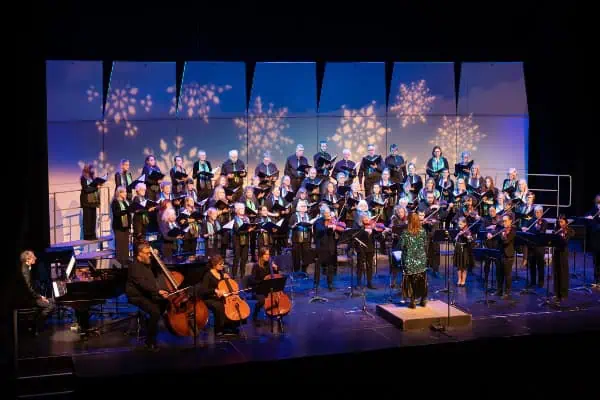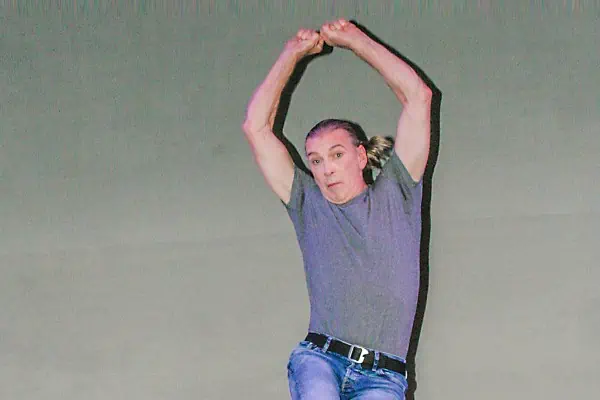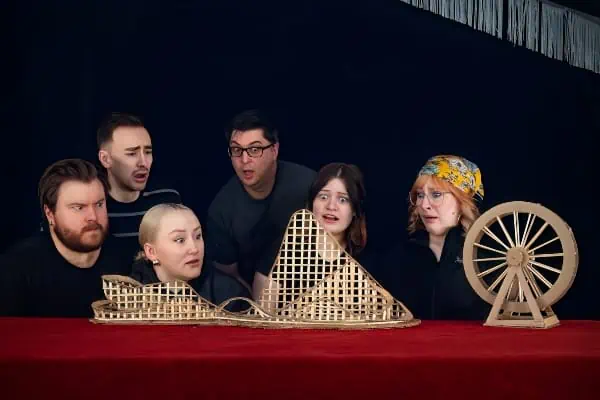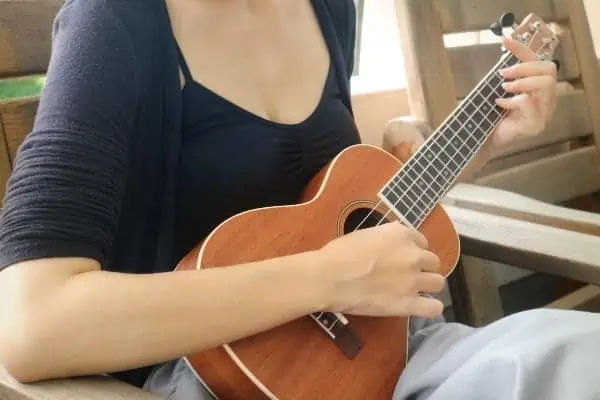You wouldn’t be wrong. Sinclair spent decades in the territorial public service, rising through the ranks before retiring in 2002 as top dog of the Yukon Development Corporation.
Next time you see him, he has his lips around the mouthpiece of a saxophone, wailing out a jazz riff with the Big Band. Cool dude for a bureaucrat, you’re thinking.
But you still don’t get the flavour of the man until you get him talking about the Yukon‘s artistic and cultural potential.
“We have an opportunity to just shoot the moon,” he boasts. “We’ve got so far we can go, based on the talent pool and the experience and the success that we’ve been enjoying. It really is amazing.”
As a musician, Sinclair is accustomed to the public eye. But try shining a spotlight on his long-time volunteer service to the arts community, chances are he’ll turn tail and run.
In fact, it took weeks of arm-twisting and a not-so-subtle hint of blackmail before he agreed to an interview.
“I’m really one of those people who likes to work from behind,” he insists.
Sinclair’s a homegrown product, born in the old Whitehorse General Hospital to parents who met here after his father returned from World War II.
“My Dad was Scottish and was sort of into the heritage, so one of the first instruments I learned to play was the bagpipes,” he says. “The Midnight Sun Pipe Band was training a lot of people, and as a kid I got right into that.”
Next came the ukulele, followed by guitar lessons with local music legend Ray Park of The Canucks.
“I was the typical teenager, playing electric guitar and hanging out with my buddies. Then I got into the high school band, and I guess that’s when I got a little more serious.”
After playing sax throughout high school, Sinclair enrolled in the music program at University of British Columbia, studying clarinet “because the saxophone wasn’t considered a legitimate instrument in those days, in Canada.”
Since UBC encouraged music students to have more than one string to their bows, Sinclair parlayed his interest in Canadian political science into the equivalent of a double Bachelor’s degree. He would later earn a Master’s in public administration from Queen’s University.
“The political scene here in the Yukon was really very dynamic, with what was to become not just representative, but responsible, government,” he says. “Just about all my papers were written about Yukon-related development and evolution of political parties, and public government as an instrument, and the constitutional changes that were being worked on, and the emergence of land claims – all that stuff.”
While he was knocking off his music degree, Sinclair played incessantly, to the point of burnout. When he returned home, he set his instruments aside for years until Rachel Grantham persuaded him to dust off his clarinet for a production of the musical, Annie.
“There were those 15-year-old reeds sitting there, and they all played well. It was amazing,” he says. “That got me playing all over again. Later, I joined the Big Band that Henry [Klassen] was leading, and got my sax going again, and just rediscovered the fun of it.”
Meanwhile, in his professional life, Sinclair was on the front lines of historic change as the territory developed its own legislative and administrative structures, often with direct public participation.
“A lot of what we’re still working with today emerged in the ’80s and early ’90s. I guess the fact that it’s still there means that it was good work.”
In 1979-80, Sinclair sat on a young Whitehorse City Council that was “trying to promote a lot of things in recreation and the arts.” As a member of the Yukon Arts Council, he was also involved with “a variety of activists and visual artists and performing arts people” who put together an annual two-week Spring Festival, among other things.
“That’s when I started to network all over the place. A bunch of us were involved in forming the Yukon Historical Museums Association during that period. The idea of building what became the Yukon Arts Centre (YAC) followed right after we got the Guild Hall going.”
Despite a major recession in the 1980s, “We set up an organization called Arts Canada North, and we attracted a whole bunch of leaders from the Yukon business community to participate. We had a really nice mix of arts and business and community drivers, as well as First Nations representation. It was really, really exciting stuff,” he recalls.
In 1992, with key support from the Yukon Government, the Yukon Arts Centre dream finally became reality.
Since then, with his fingerprints on numerous initiatives, such the YAC board, Jazz Yukon, Music Yukon, the Yukon Arts Foundation and last year’s Yukon Arts Summit, Sinclair’s enthusiasm for the territory’s cultural future remains boundless.
“What I like to say is we don’t have a crab pot here… you know that thing when somebody’s going to get out of the pot, others are going to drag them down. We’re all like, ‘Yahoo, let’s jump on board and go that way, too.'”




